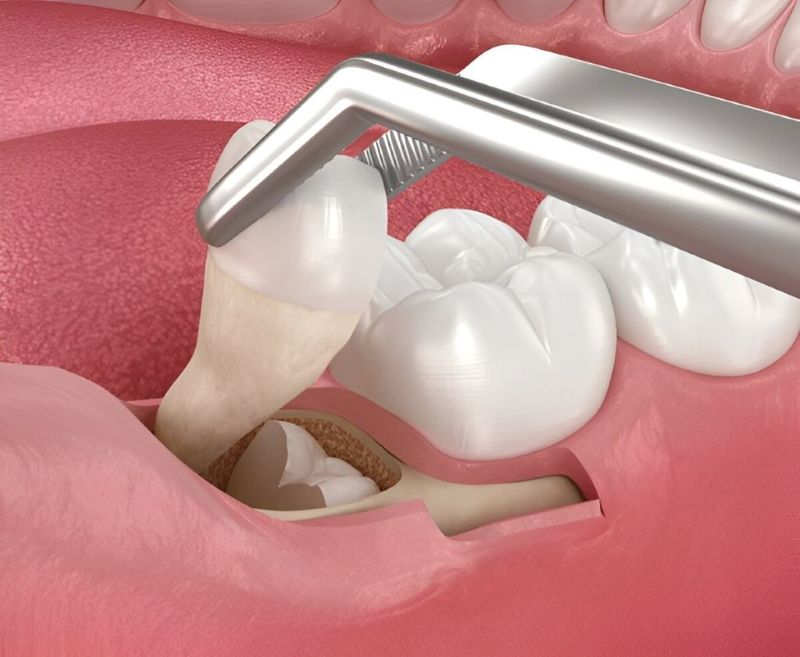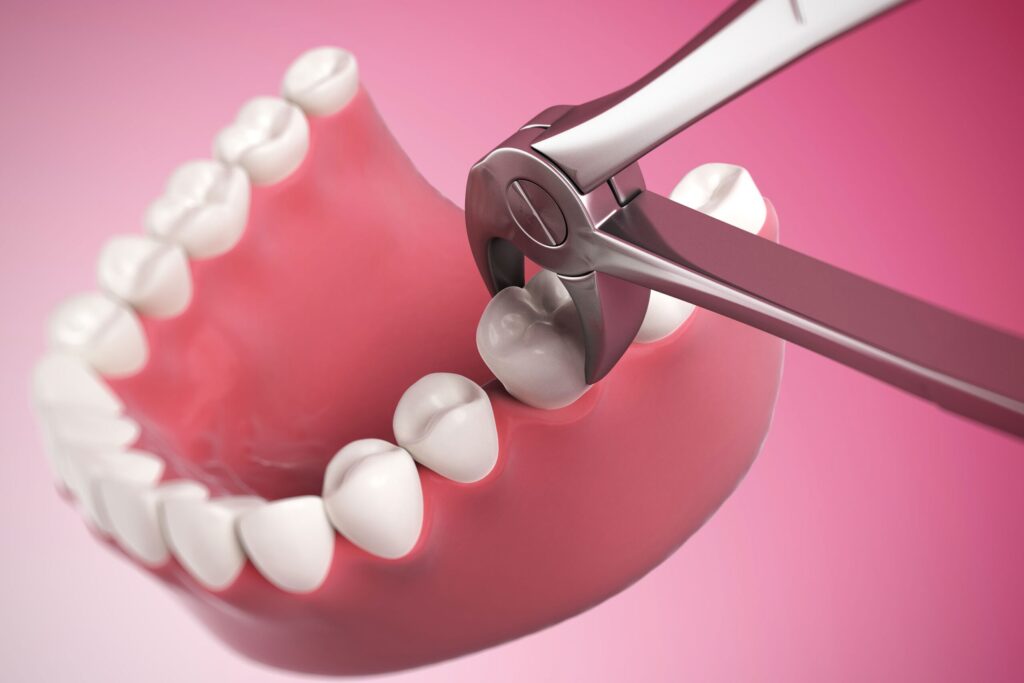Wisdom Tooth Extractions in Sherwood Park
Wisdom Tooth Extractions Near You
If you are between the ages of 13 and 17 with a nagging pain at the back of the mouth that comes and goes, you could be experiencing the emergence of your wisdom teeth. As wisdom teeth try to squeeze themselves in along the jawline, they may push and then recede, each time pushing further and further. This can be an uncomfortable process because often there isn’t enough room at the back of your mouth to accommodate these relative giants.

What are Wisdom Teeth Exactly?
Because wisdom teeth are so big, they tend to cause problems as they emerge, including pushing other teeth out of alignment. Wisdom teeth were acknowledged as a contributing factor to malocclusion in early orthodontic studies. These teeth are likely a holdover from a time when humans spent far more time chewing through thick, fibrous plant mass throughout their day—something not as relevant for us today. Regardless of the reason we have them, it’s important to know the signs and symptoms associated with wisdom teeth emergence so that we can identify symptoms of infection or impaction. The jawbone requires bite force distribution through the root systems of the teeth to continue to remineralize and remain strong. Without these bite forces, the jaw begins to direct vital minerals away from the jaw, resulting in a diminishment of strength and structure.
If you’ve been keeping up with your dental checkups, there’s a good chance that your dentist in Sherwood Park has already identified your wisdom teeth on an X-ray and talked to you about what to expect during wisdom tooth extractions near you. If not, the pain in the back of your mouth could be the first time you’ve thought about them. Dentures require that food be consumed in small bites, distributed across the arches evenly. Because dentures do not act like real teeth, eating with dentures can be difficult to adjust to. If dentures come with a full palate, the ability to taste food is significantly diminished.
Why are Wisdom Teeth Usually Removed?
While wisdom teeth can erupt and assume their rightful position along with your other healthy teeth, it is rare considering the space they need. Not only are the teeth themselves big, but their root systems are substantial. Wisdom tooth extractions in Sherwood Park are often recommended to ensure that none of the common problems with wisdom teeth have a chance to affect your oral health. Most people have one wisdom tooth per quadrant, but variations are also seen—some have fewer than 4, while some have more!
Likelihood of Decay
Wisdom teeth are the last teeth to erupt in the mouth, so they are quite far back and difficult to reach for effective cleaning. Food that is chewed by these teeth often remains in the valleys of the teeth or between the wisdom teeth and molars. Because of this difficulty, wisdom teeth often succumb to eventual decay. Decay in a wisdom tooth that results in infection can be serious if not treated promptly, as these roots can extend up into the sinus cavities.
Level of Impaction and Chronic Infection
It is common for wisdom teeth to become impacted, meaning stuck, on their way through the bone and soft tissues. Some teeth are positioned laterally, ensuring that they will never fully erupt on their own. The trouble with this is that the tooth could grow toward the root systems of other teeth and cause damage to them. Some wisdom teeth are still partially impacted even after they have erupted to the same level as the rest of the teeth. This happens when the tooth has emerged completely but is still covered, partly, by gum tissue. This tends to lead to chronic infection due to the food particles and liquids trapped under the flap of tissue rotting the tooth and irritating the tissues.
If you feel pain when opening and closing the jaw, making it difficult to eat comfortably, it’s likely that you have an infection in the tissues around the tooth that requires attention from a dentist near you. If you don’t have significant pain but you taste a distinct taste coming from the gums around the teeth, this is another sign of infection. Your dentist will likely prescribe a course of antibiotics to stop the infection and then discuss extracting the tooth before it has a chance to return. If you have questions about this or other services offered by our general dentist, contact our clinic today!
What to Expect During Wisdom Tooth Extraction
You may have heard exaggerated tales of the complexities involved with wisdom tooth extraction, but the truth is that wisdom tooth extractions near you are typically straightforward and most extractions can be safely conducted under local anesthetic. To ensure that this is a smooth process, your dentist will prepare by taking fresh X-rays to determine if there is any reason to refer you to a dental specialist for extraction. This may occur if the roots of the tooth have grown around a nerve or if there is a severe and complex impaction.
Once your dentist determines that he or she can perform the extraction without the aid of a specialist, you will have a local anesthetic injected into the tissues to numb the area before the tooth is extracted in a brief procedure. The difference in having wisdom teeth extracted is usually found in aftercare. After having your tooth extracted, your dentist will advise you on how not to disturb the important blood clot in the socket and how to care for the extraction site.

Contact Us Today
If you have questions about wisdom tooth extractions in Sherwood Park offered by our general dentists, contact Salisbury Dental Clinic today. We are happy to guide you through the process so you understand what to expect and feel more comfortable. Your oral and overall well-being matter to us, and we’ll be with you every step of the way.
FAQ
What is a wisdom tooth extraction?
A wisdom tooth extraction is a procedure to remove one or more teeth at the back of your mouth. It helps prevent pain, infection, or crowding.
Is the procedure painful?
You’ll receive local anesthesia to numb the area, so you shouldn’t feel pain during the extraction. Mild discomfort after is normal and can be managed with medication.
How long does it take to recover?
Most patients recover within a few days to a week. Following your dentist’s care instructions helps ensure a smooth healing process.
Are there risks or complications?
Complications are rare but may include swelling, bleeding, or infection. Your dentist will guide you on how to minimize these risks.

